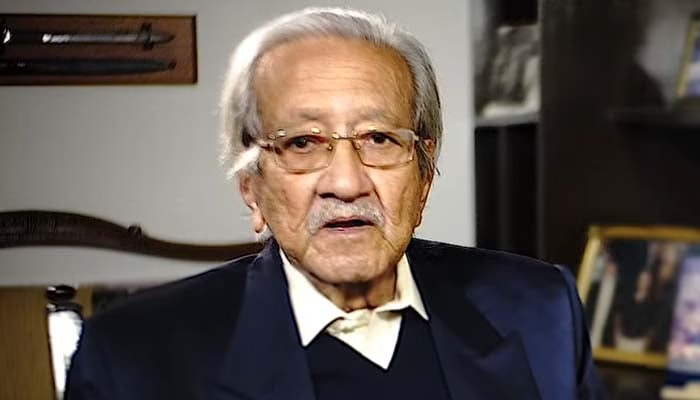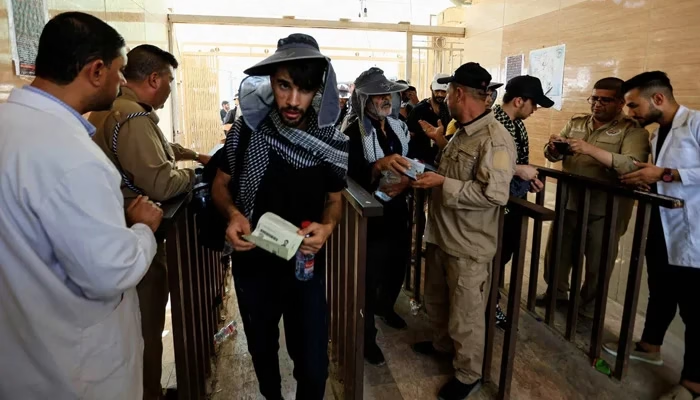In a significant development within Pakistan’s judiciary, the Supreme Court has established a 7-member constitutional bench, led by Justice Aminuddin Khan, to deliberate on key constitutional matters. This decision was reached during a recent Judicial Commission meeting, chaired by Chief Justice Yahya Afridi, highlighting the ongoing internal deliberations shaping the country’s judicial landscape. According to sources, the formation of this bench was approved with a 7-5 majority vote, reflecting the diverse perspectives within the commission.
The decision to form this specialized bench aligns with the Supreme Court’s objective of addressing complex constitutional cases efficiently and with due attention to regional representation. The bench comprises judges from across the provinces of Pakistan, bringing a comprehensive legal and regional perspective to the nation’s highest court.
Formation of the Constitutional Bench: Key Decisions
The 7-member bench is composed of justices from four regions of Pakistan: Punjab, Sindh, Balochistan, and Khyber Pakhtunkhwa. According to sources, two Supreme Court judges, Justice Aminuddin Khan and Justice Ayesha Malik, both from Punjab, have been selected for this bench, alongside other senior justices from various regions. The inclusion of judges from multiple provinces underscores the bench’s intent to represent the nation’s diverse judicial outlooks, with members from Sindh, Balochistan, and Khyber Pakhtunkhwa adding essential regional insights.
The formation of this bench came after a detailed Judicial Commission meeting, chaired by Chief Justice Yahya Afridi, who oversees the Supreme Court’s administrative functions. Sources indicate that the decision to form the bench was contentious, with a vote split of 7-5. Justices Mansoor Ali Shah, Muneeb Akhtar, Umar Ayub, and Shibli Faraz, along with Chief Justice Yahya Afridi himself, reportedly opposed the decision. This dissent reflects differing viewpoints on the bench’s formation, yet the final outcome stands as a majority-backed decision.
Composition of the Bench: Regional Diversity
The constitutional bench’s members have been carefully selected to ensure representation from all key regions of Pakistan, balancing expertise with regional perspective. Here is an overview of the bench members and their provincial affiliations:
- Justice Aminuddin Khan (Punjab) – Head of the Bench
- Justice Ayesha Malik (Punjab)
- Justice Muhammad Ali Mazhar (Sindh)
- Justice Athar Hasan Rizvi (Sindh)
- Justice Jamal Mandukhil (Balochistan)
- Justice Naeem Akhtar Afghan (Balochistan)
- Justice Musrat Hilali (Khyber Pakhtunkhwa)
This selection aims to integrate a multi-dimensional legal approach in line with Pakistan’s geographical and societal diversity, ensuring that the constitutional matters are addressed with a balanced, nationwide perspective.
Role and Significance of the Constitutional Bench
The establishment of a constitutional bench is a crucial step in handling complex legal questions with potentially far-reaching implications. Constitutional benches, by design, address fundamental issues surrounding constitutional interpretation, enforcement, and disputes that impact governance, civil rights, and institutional responsibilities.
By assigning this task to a specialized bench, the Supreme Court ensures a consistent and authoritative interpretation of constitutional law, a necessity in a rapidly evolving legal landscape. The bench will address matters that may involve intricate legal principles, requiring a deep understanding of both the law and the unique socio-political contexts of Pakistan.
Dissenting Opinions and Judicial Balance
The 7-5 split in the Judicial Commission vote to form this bench highlights internal debates on how constitutional issues should be addressed. Chief Justice Yahya Afridi and four other justices reportedly voiced their opposition to the formation of this bench. While the specific reasons behind their dissent are not publicly disclosed, dissenting votes in judicial decisions often reflect concerns about procedural, administrative, or ideological perspectives.
However, dissent in judicial matters can also contribute positively by presenting alternative viewpoints and fostering in-depth discussions. This diversity of opinion among the judiciary ensures that critical decisions are weighed from multiple angles, potentially leading to well-rounded outcomes.
Looking Forward: Upcoming Judicial Commission Meeting
Following the decision to establish this constitutional bench, Chief Justice Yahya Afridi will preside over the next Judicial Commission meeting, set for tomorrow. This meeting will likely focus on further deliberations regarding procedural details and the future agenda for the constitutional bench.
In the upcoming session, the commission may discuss specific cases that will be assigned to the bench, along with timelines and strategic objectives. The role of the bench, which may address high-profile constitutional matters, could have a lasting impact on Pakistan’s legal framework and societal norms.
An Important Development for Pakistan’s Judiciary
The formation of a 7-member constitutional bench within the Supreme Court marks a significant step toward strengthening Pakistan’s legal infrastructure. Led by Justice Aminuddin Khan, the bench is set to tackle complex and potentially transformative issues with a balanced representation of regional and legal expertise.
As the constitutional bench begins its work, the diversity of thought, regional representation, and legal insight brought by its members will be instrumental in shaping Pakistan’s constitutional landscape. This decision reflects the Supreme Court’s commitment to addressing complex legal challenges with a focus on inclusivity and judicial integrity. With the upcoming Judicial Commission meeting, further clarity on the bench’s agenda and key cases is anticipated, underscoring the judiciary’s proactive approach in handling the nation’s pressing constitutional issues.



